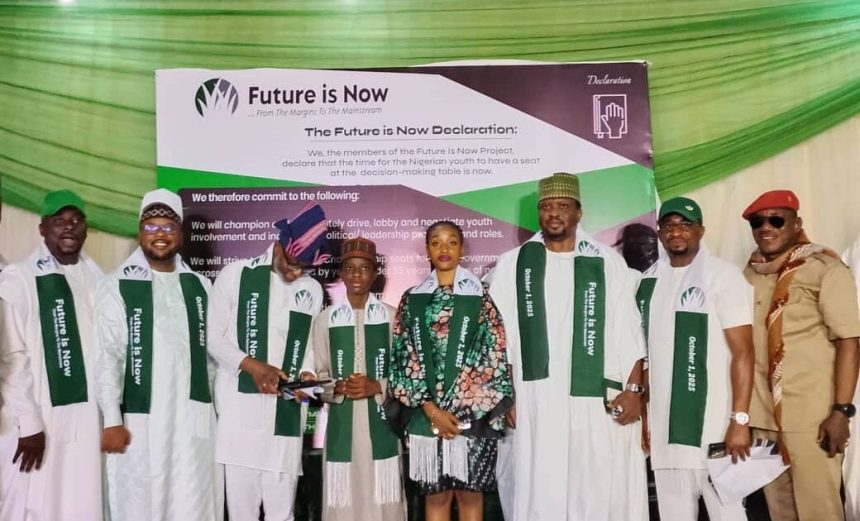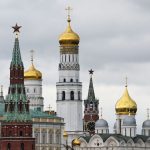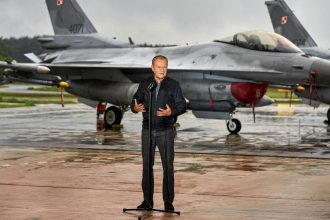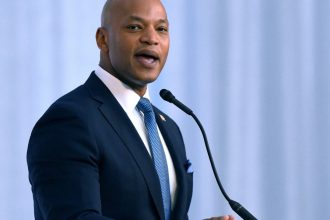As Nigeria marked its 65th Independence Anniversary, a coalition of young leaders and stakeholders gathered in Abuja on Wednesday to unveil the Future Is Now Project, a bold national initiative aimed at l increasing youth participation in political leadership across the country.
The event, held at the Nicon Luxury Hotel, brought together political figures, civil society leaders, student union executives, and development partners, all unified in their call for a generational shift in governance.
Participants noted that young Nigerians are not merely the leaders of tomorrow, but are the leaders of today, rejecting any form of delay, denial, or exclusion from political leadership.
In a bold vision for the nation’s future, a communique read by its Convener, Mr. Laolu Akande, laid out clear, ambitious targets to be achieved by the next election cycle.
These include, “At least 70% of Local Government Chairmanship seats to be held by youths under 35 years; at least 70% of State House of Assembly seats to be occupied by youths under 35 years; “at least 70% of House of Representatives seats to be contested for and won by youths under 40 years; and a minimum of 50% of executive appointments at both Federal and State levels reserved for Nigerians under 40 years.”
To realise these goals, a pledge was made to champion political inclusion by lobbying, negotiating, and mobilising support for credible youth candidates across all political parties, while efforts will also focus on mentorship programmes, capacity building for young leaders, and forming cross-cultural alliances to ensure governance reforms favoring youth representation.
At the unveiling, homage was paid to Nigeria’s elder statesmen and stateswomen, acknowledging their foundational contributions while urging them to graciously yield space for emerging young leaders.
The gathering opened with an address by the Interim Chairman of the project, Rep Abdussamad Dasuki, who described the event not merely as a gathering, but as the ignition of a movement – a national commitment to dramatically increase youth leadership at all levels of governance, saying that the call was for older generations to act as mentors and guides, ensuring a smooth and sustained leadership transition.
Dasuki said the Future is Now Project is born of sacrifice and demands sacrifice from the older generation.
“Today, we are not just announcing a project, but igniting a movement, one born of sacrifice, fueled by persuasion and courage, and sustained by the dreams of millions of Nigerian youth. The Future is not tomorrow, the Future is Now,” Dasuki noted.
In his speech, Dasuki reflected on Nigeria’s political history, noting that while young leaders had once been central to the country’s formation and early development, they have increasingly been sidelined from positions of power, despite the demographic reality that over 70 per cent of Nigeria’s population is under the age of 35.
He cited the signing of the Not Too Young To Run Act in 2018 as a step forward, but stressed that persistent barriers still prevent meaningful youth participation in governance.
Dasuki called for a generational shift, where younger leaders not only contest elections but are supported to win and lead.
Drawing lessons from recent youth-led global protests in countries like Nepal, Dasuki warned of the dangers of political exclusion and the potential unrest that can follow when large youth populations feel alienated from their governments.
“When a large demographic feels excluded from decision-making, frustration festers. We must act now, not only to empower, but to prevent disillusionment that can lead to instability,” he warned.
Key highlights of the event include the unveiling of the interim governance structure of the Future Is Now project, which will undertake the preparation for a more elaborate gathering of Future Is Now in the first quarter of 2026, and the unveiling of the membership registration portal www.futureisnow.ng
Also at the unveiling were former Minister of Youth, Solomon Dalung; Hon Ibrahim Bello Haliru (the youngest member of the National Assembly); Hon. Henry Shield; Hon Salisu Yakassai, and Hon David Oloto.
Ms Nicole Nwosu (Convener 1) and Ibrahim Zanna (Convener 2) made presentations at the event, while goodwill messages were delivered by development partners, civil society leaders, youth and student leaders, and other partners.









